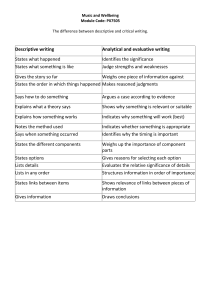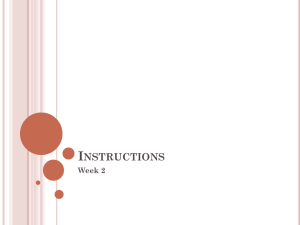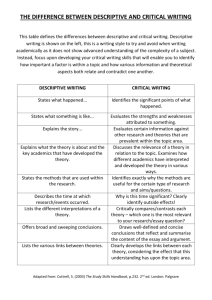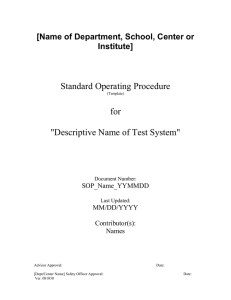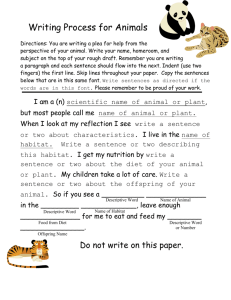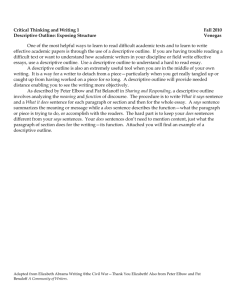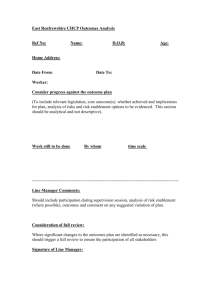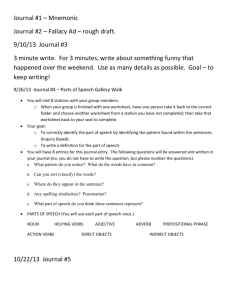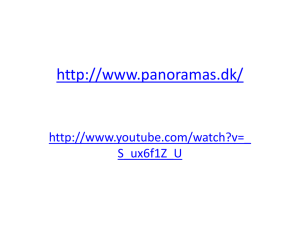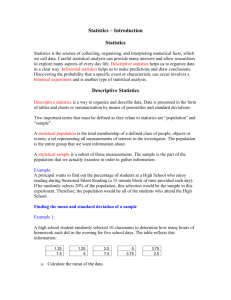Episode 003
advertisement
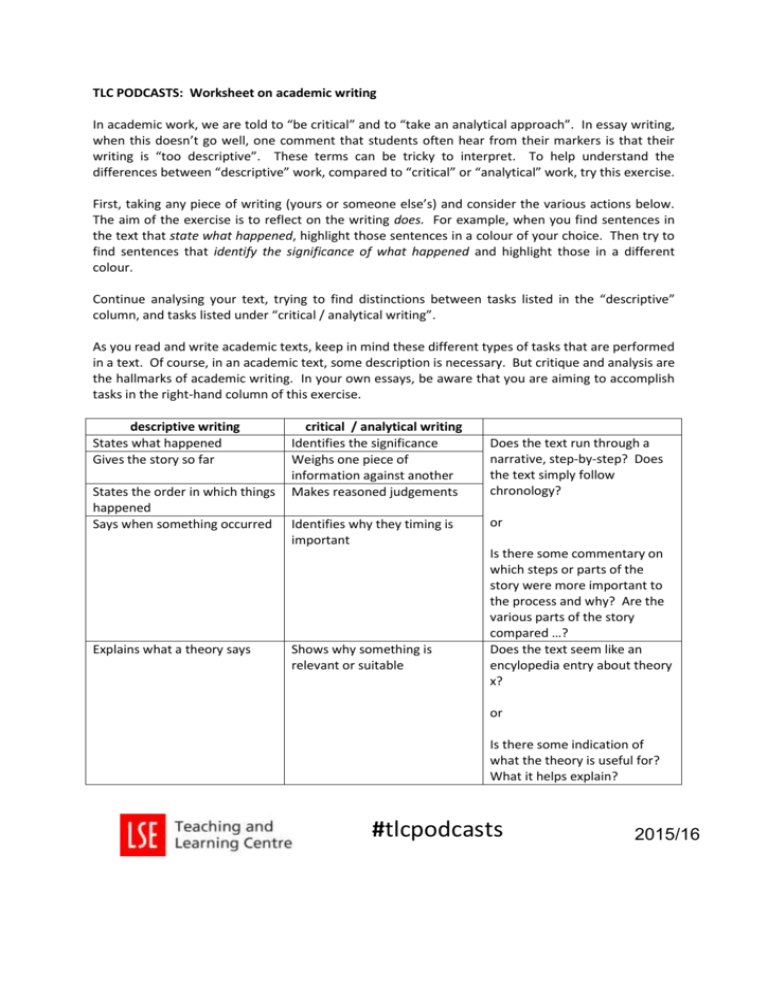
TLC PODCASTS: Worksheet on academic writing In academic work, we are told to “be critical” and to “take an analytical approach”. In essay writing, when this doesn’t go well, one comment that students often hear from their markers is that their writing is “too descriptive”. These terms can be tricky to interpret. To help understand the differences between “descriptive” work, compared to “critical” or “analytical” work, try this exercise. First, taking any piece of writing (yours or someone else’s) and consider the various actions below. The aim of the exercise is to reflect on the writing does. For example, when you find sentences in the text that state what happened, highlight those sentences in a colour of your choice. Then try to find sentences that identify the significance of what happened and highlight those in a different colour. Continue analysing your text, trying to find distinctions between tasks listed in the “descriptive” column, and tasks listed under “critical / analytical writing”. As you read and write academic texts, keep in mind these different types of tasks that are performed in a text. Of course, in an academic text, some description is necessary. But critique and analysis are the hallmarks of academic writing. In your own essays, be aware that you are aiming to accomplish tasks in the right-hand column of this exercise. descriptive writing States what happened Gives the story so far States the order in which things happened Says when something occurred Explains what a theory says critical / analytical writing Identifies the significance Weighs one piece of information against another Makes reasoned judgements Identifies why they timing is important Shows why something is relevant or suitable Does the text run through a narrative, step-by-step? Does the text simply follow chronology? or Is there some commentary on which steps or parts of the story were more important to the process and why? Are the various parts of the story compared …? Does the text seem like an encylopedia entry about theory x? or Is there some indication of what the theory is useful for? What it helps explain? #tlcpodcasts 2015/16 Are there competing theories? Any notions of which theoretical approaches are more or less applicable to various real-world phenomena or situations? Is a theory or model described in detail? Are the various parts or facets listed and defined? States what something is like Evaluates (judges the value) strengths and weaknesses Lists details Evaluates the relative significance of details or States the different components Weighs up the importance of component parts Is there some rank or order? Based on what? States links between items Shows the relevance of links between pieces of information Lists in any order Structures information in order (eg. of importance) Are the most important aspects identified? Can you tell which details or parts the authors finds least crucial to the ensemble? Can you tell from the text why each aspect that is described matters? Says how to do something Argues a case according to evidence Explains how something works Indicates why something will work (best) Notes the method used Indicates whether something is appropriate or suitable States options Gives reason for the selection of each option Gives information Draws conclusions This worksheet is adapted from material found on Learnhigher.ac.uk. #tlcpodcasts 2015/16
